"I go to school and teach because I believe that education is a basic right for every student"
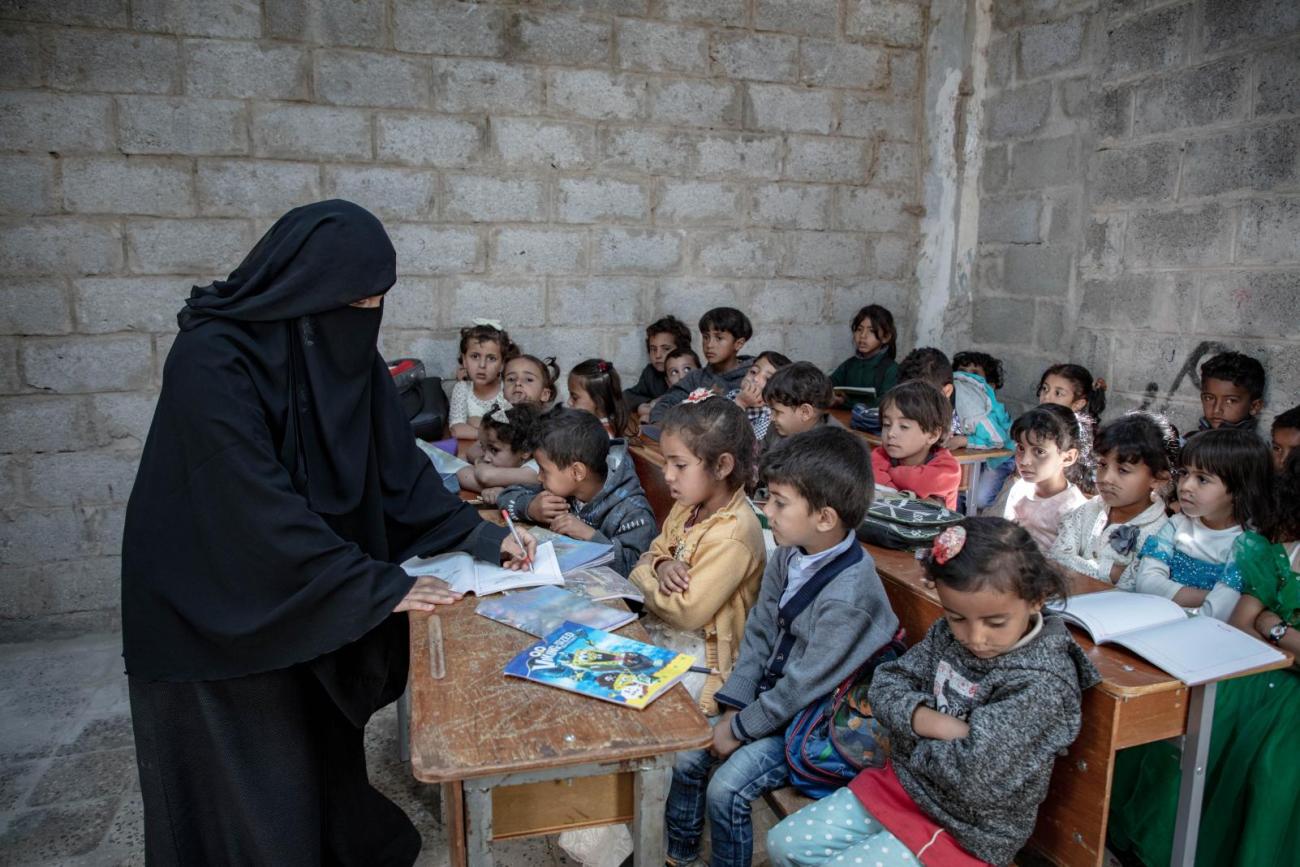
Badriah is a teacher from Sana'a benefiting from UNICEF cash incentives project in Yemen.
Every morning, Badriah wakes up early and gets ready to go to school. Even though she hasn’t received her salary in the last three years, she continues to work enthusiastically to teach the students of Khawla Bent Al-Azwar secondary school, in Sana’a city.
Originally from Taiz, the 42-year-old public school teacher is a mother of seven children. Some of Badriah’s children go to school, some are college students, but the others don’t have a chance to education, because of the family’s poor living conditions. “My older son goes to college, but he is forced to eat only once a day to save for transportation and purchase of books. My younger son, Moa’ayed cannot go to school because we don’t have enough money for the school supplies,” Badriah says.
“I haven’t gotten my salary for three consecutive years now. My husband and I are struggling every day to cover our family’s needs,” Badriah explains. “I had to sell many of my belongings, including my family jewelry and wedding ring, to pay my debts and now, I am thinking of selling my refrigerator to feed my children,” the female teacher continues while standing in her modest kitchen.
The income of Badriah and her husband is very low. Her husband is a taxi driver. He works hard to make as much money as he can. However, it is not enough to buy basic food items such as wheat flour, vegetable oil or pay for the maintenance of his taxi when it breaks down. One of their children suffers from hemolytic anemia and another one has a heart disease which requires an insulin shot every month. Badriah is not able to buy the medicine he needs to get proper treatment. “Our life is just an agony now,” she says.
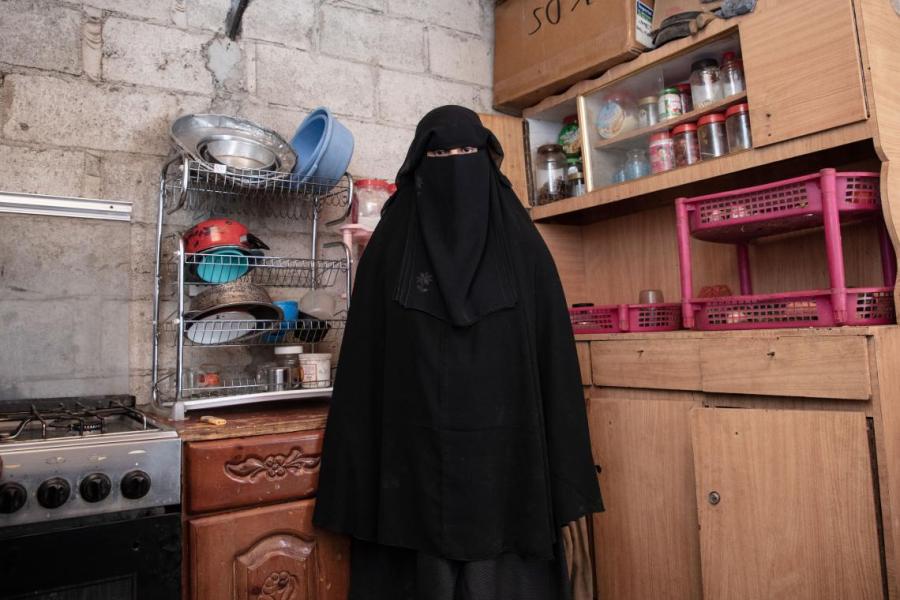
“I have to cook on the fire now because gas cylinders are too difficult to get.”
In the past, Badriah never had to collect firewood or queue for water for hours like these days. She used to receive her teacher salary every month and buy food, cooking gas and support her children’s education. Her older sons study in other governorates and need support to pursue their education.
But everything changed when the current war broke out in 2015. Badriah is indebted to many people. “Now, I am obliged to borrow money from different people to help my children. One day, my son fell sick and wanted to eat a banana. I didn’t even have money to buy one for him,” Badriah says.
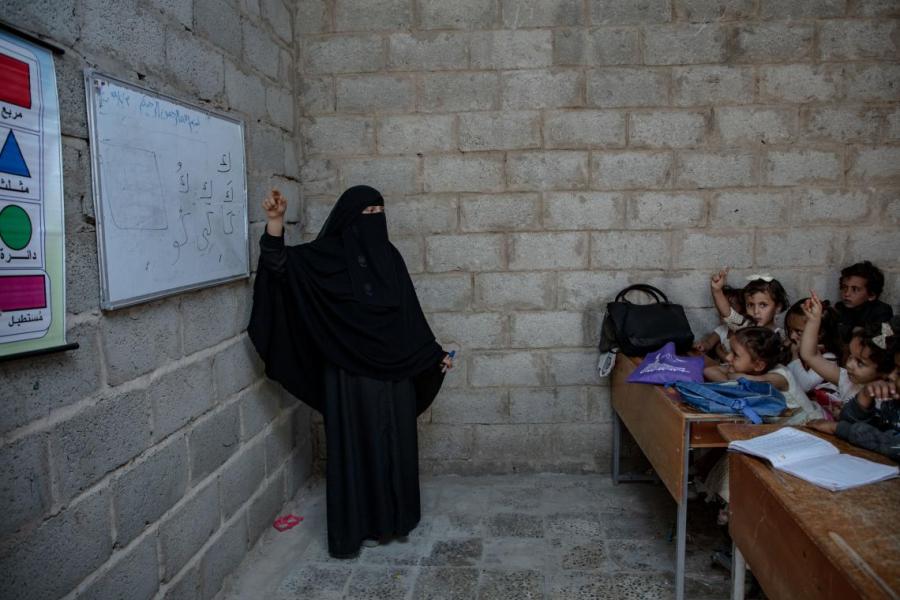
"Sometimes I go to school and try to do my best to teach my students. But when I leave home, I feel I cannot do anything for my own children, it is depressing,” says Badriah. “I will keep doing my job, because every child has the right to get the best education regardless of their situation. I strongly believe education is the foundation of life,” Badriah stresses with determination. “Students come to school and we should teach them because they are not responsible for this war,” she adds.

As education and basic services are collapsing in Yemen, UNICEF is supporting teachers and school-based staff to ensure education for children. Through its cash assistance programme, UNICEF and its partners are providing teachers with incentives, to help them cover some of their needs, such as transportation, food, medicine and other basic items. Badriah is benefitting from this assistance. “I was so happy when I received the money. I used it to buy food and medicine for my sons,” she says.
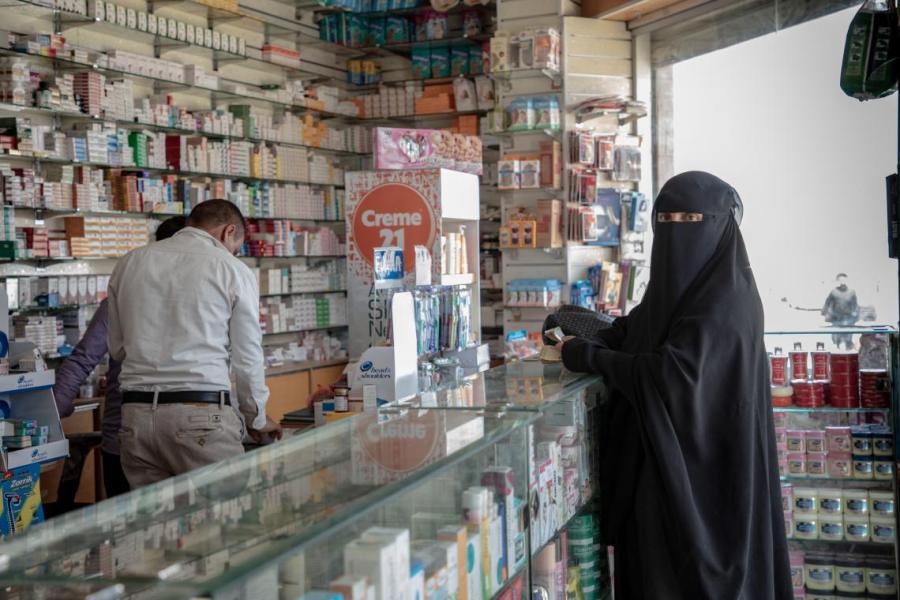
“My message to every teacher is that, even in your desperate moments, never give up and keep trying because teaching is from the heart,” Badriah says. “I am a teacher and a parent. I also want my children to be able to pursue their education despite the war. Parents should try as much as they can to support their children to study and have a bright future,” she concludes.
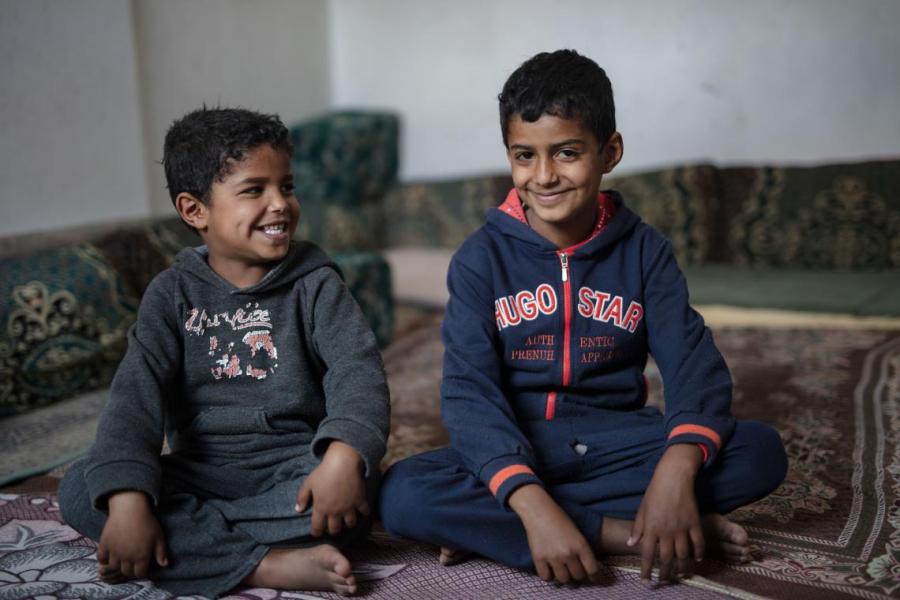
In Yemen, UNICEF is supporting the teachers so that conflict-affected children can still have a chance to education, thanks to the support of Education Cannot Wait, the Kingdom of Saudi Arabia and the United Arab Emirates.

